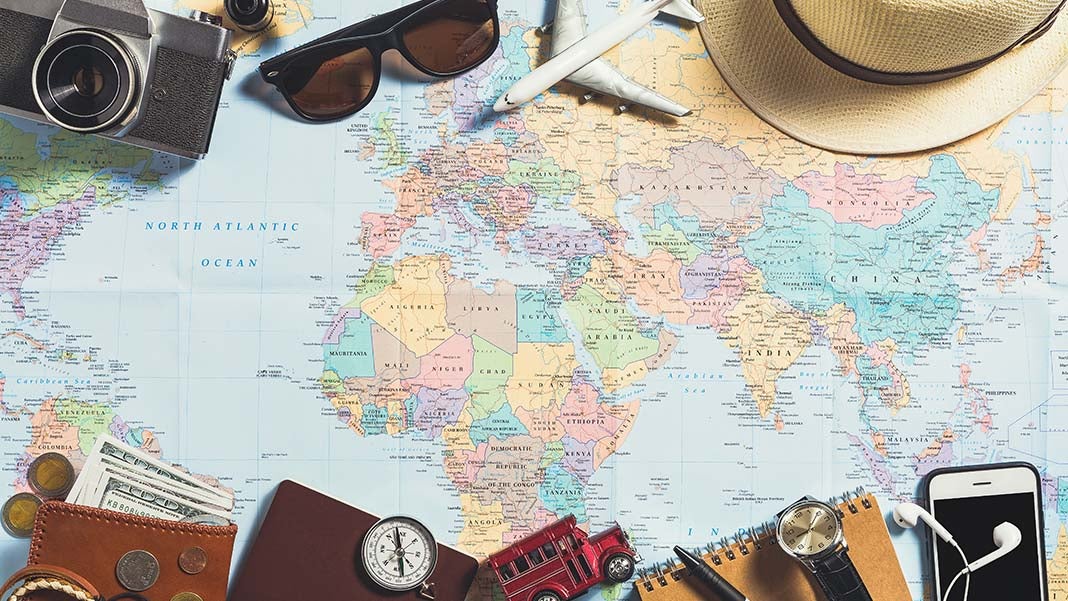
It’s hard to think of another sector that’s been impacted as badly by COVID-19. The headline-grabbing outbreak on the cruise ship Diamond Princess set things off to a bad start for travel stocks, and as borders closed and cities locked down, some people predicted the demise of the travel industry entirely.
But thankfully, the travel bug is hard to wipe out. People are still eager to visit new places and travel stocks will rise again, but travel is going to be very different in the post-COVID world.
Here are some of the big changes that investors can expect to see for travel in the new normal.
Space becomes valuable
People have spent anything from several weeks to 18 months within their own four walls, so now they are yearning to get out of the house. At the same time, a year and a half of avoiding crowds has left its mark: many travelers are still uneasy about visiting crowded places. The new trend is for wilderness tourism in nature reserves, wildlife sanctuaries, and national parks.
People want to be part of nature and wildlife, rather than feel the buzz of a city break, and many are seeking a semi-spiritual experience in the empty countryside where they can gaze at the stars. As a report by Euronews and Globetrender put it, “A combination of on-going pandemic anxiety and over-technologised living has meant that re-connecting with the natural world is becoming increasingly important.”
Authentic travel replaces tourism
As Generation Z makes up a larger slice of the travel market, their demand for authenticity is taking over. Sick of over-Instagrammed destinations, they want to visit humbler locations off the beaten track, live like the locals live, and replace the “holiday” with “experiences.”
It’s not just the youngest travelers; many consumers want to immerse themselves into a new community instead of viewing it from the outside as tourists. They want to support local economies by hiring local tour guides, taking part in local celebrations, tasting local food, and shopping in local stores.
Quality gains over quantity
Hand in hand with the desire for authenticity comes the “workation.” COVID-19 proved that remote work doesn’t affect productivity and made employers more inclined to accept it, so now masses of employees can work and live in a new place for several weeks or months at a time.
Even people who don’t plan to combine work and travel have decided to travel more mindfully. They want to take fewer trips, but to plan the ones they take more carefully and make them last much longer. Instead of the weekend city break, expect to see long road trips, glamping and campervanning holidays, and mindfulness retreats.
Flexibility isn’t optional
If we learned one thing from the pandemic, it’s that life is uncertain. Travelers are no longer willing to lock themselves into a vacation several months – or even several weeks – down the line. They know that their own health, international travel policies, and the situation at their proposed destination could change at any moment, so they demand flexible booking policies and fee-free cancellations.
At the same time, the unsettled circumstances have encouraged people to embrace the last-minute getaway. Instead of planning ahead, travelers prefer to put off booking until shortly before they travel, to reduce the risk of disappointment.
Individual travel trumps group tours
Partly due to a lingering distaste for crowded places that could spread infection, and partly thanks to the broader trend of personalization, the travel market is seeing a rise in individual travel experiences. Group tours are rapidly becoming unpopular; people want to travel alone or in small family groups to places where they can enjoy unique, customized experiences.
In fact, “experience” is the keyword. Today’s travelers don’t want passive beach holidays anymore; they want to learn a skill, invest in their mental or spiritual health at a wellness or longevity retreat, or have a lasting positive impact on their destination by completing a project at coworking camps.
The digital transformation can’t be delayed
After 18 months of online shopping, consumers expect that booking and consuming travel should be every bit as seamless and friction-free as buying a pair of shoes. They want digital payments and omnichannel sales, with confirmation codes to replace paper tickets and boarding passes.
Visitors to amusement parks, museums, and other attractions increasingly look for digital experiences that include augmented and virtual reality (AR and VR), customized activities, and personalized messaging that welcomes them by name and remembers their preferences from one visit to the next.
With tempers and patience exhausted after months of corona living, travelers don’t want to have to wait in line for hours to verify vaccination status, test results, booking forms, and passports. Border control, customs authorities, and travel companies have to adopt digital, connected systems that enable fast identification and check in without compromising on security.
Safety goes to the head of the line
Last but certainly not least, post-COVID travelers are hyper aware of safety and hygiene. They’re looking for hygiene protocols regarding issues like mask wearing and social distancing, prefer touch-free check in and self-serve information portals, and appreciate measures like the use of UV light for more rapid and reliable disinfection.
Additionally, there’s more concern about health provision when they reach their destination. Travelers want insurance that covers the need for isolation and/or hospitalization due to COVID-19, and access to medical care if necessary throughout their trip.
While it’s clear that travel in the post-COVID era won’t be the same as it used to be, there’s no reason to abandon travel stocks entirely. These trends show that the desire for travel is still strong, it’s just evolving towards a new reality.
Author: Sylvia Jablonski, Chief Investment Officer of Defiance ETFs, manages Defiance’s retail and institutional investment research, capital markets and thematic ETF model portfolios. Acknowledged as a top expert in the ETF space, Sylvia is frequently featured on CNBC, Bloomberg and the Wall Street Journal.
2278 Views












